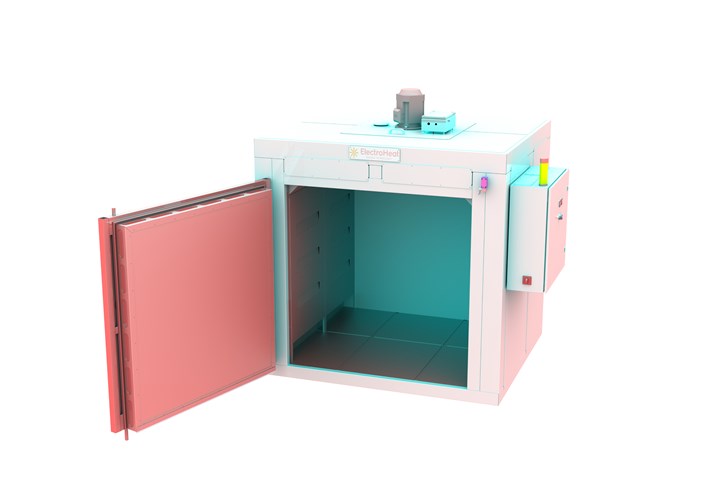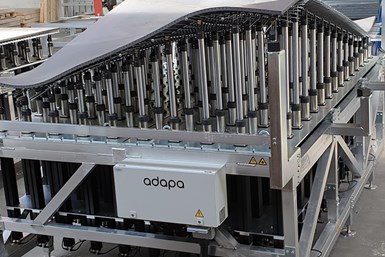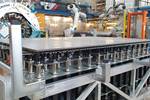Adapa, ElectroHeat partner for reconfigurable thermoforming solution
Off-the-shelf solutions will pair curing oven and reusable adaptive mold to fit standard panel sizes for lower-cost composites manufacturing.

Photo Credit: Adapa A/S
It was recently reported that Adapa A/S (Aalborg, Denmark) and ElectroHeat Sweden AB (Gothenburg, Sweden) have entered a cooperation in supplying combined adaptive molds and heating solutions for the composite industry. The cooperation results from the need for an off-the-selves solution that will pair curing oven and reusable adaptive mold design that can fit standard panel sizes for composites manufacturing
Thermoforming composites and thermoplastics into curved designs on a reconfigurable adaptive mold is a manufacturing process that reduce the use of one-off molds and reduce the use of resin. Additional benefits include reduced waste, more lightweight composite products and a lower manufacturing cost.

Adapa says it is pleased to have initiated a cooperation with ElectroHeat, which is said to have extensive experience in supplying ovens and furnaces to a broard variety of industries like aerospace, automotive, shipyards and manufacturing industry all over the world. According to Adapa, ElectroHeats’ industrial ovens — used for a variety of heating processes such as drying, curing and hardening — fit well to the use of its adaptive molds in various industries and manufacturing processes.
Related Content
-
CirculinQ: Glass fiber, recycled plastic turn paving into climate solutions
Durable, modular paving system from recycled composite filters, collects, infiltrates stormwater to reduce flooding and recharge local aquifers.
-
Plant tour: Arris Composites, Berkeley, Calif., U.S.
The creator of Additive Molding is leveraging automation and thermoplastics to provide high-volume, high-quality, sustainable composites manufacturing services.
-
Natural fiber composites: Growing to fit sustainability needs
Led by global and industry-wide sustainability goals, commercial interest in flax and hemp fiber-reinforced composites grows into higher-performance, higher-volume applications.













